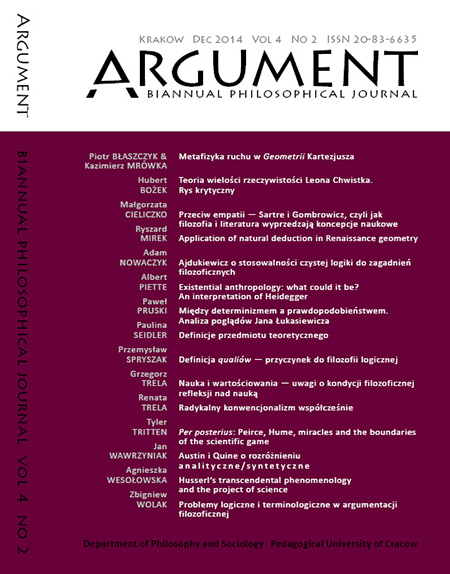Per posterius: Peirce, Hume, miracles and the boundaries of the scientific game
Keywords:
methodology, abduction, Neglected Argument, God, playAbstract
This article provides a response to David Hume’s argument against the plausibility of miracles as found in Section 10 of his An enquiry concerning human understanding by means of Charles Sanders Peirce’s method of retroduction, hypothetic inference, and abduction, as it is explicated and applied in his article entitled A Neglected Argument for the Reality of God, rather than focusing primarily on Peirce’s explicit reaction to Hume in regard to miracles, as found in Hume on miracles. The main focus will be on Peirce’s neglected argument rather than his explicit confrontation with Hume on the issue of miracles, because his criticisms of Hume demands a methodological approach appropriate for scientifically analysing surprising phenomena or outliers, of which miracles or the reality of God would be but two examples amongst many. This article, then, consists of an attempt to construct this method as one that draws inferences neither a priori nor a posteriori, but per posterius, because such a method is capable of rigorously questioning rogue or surprising phenomena, e.g. miracles.


